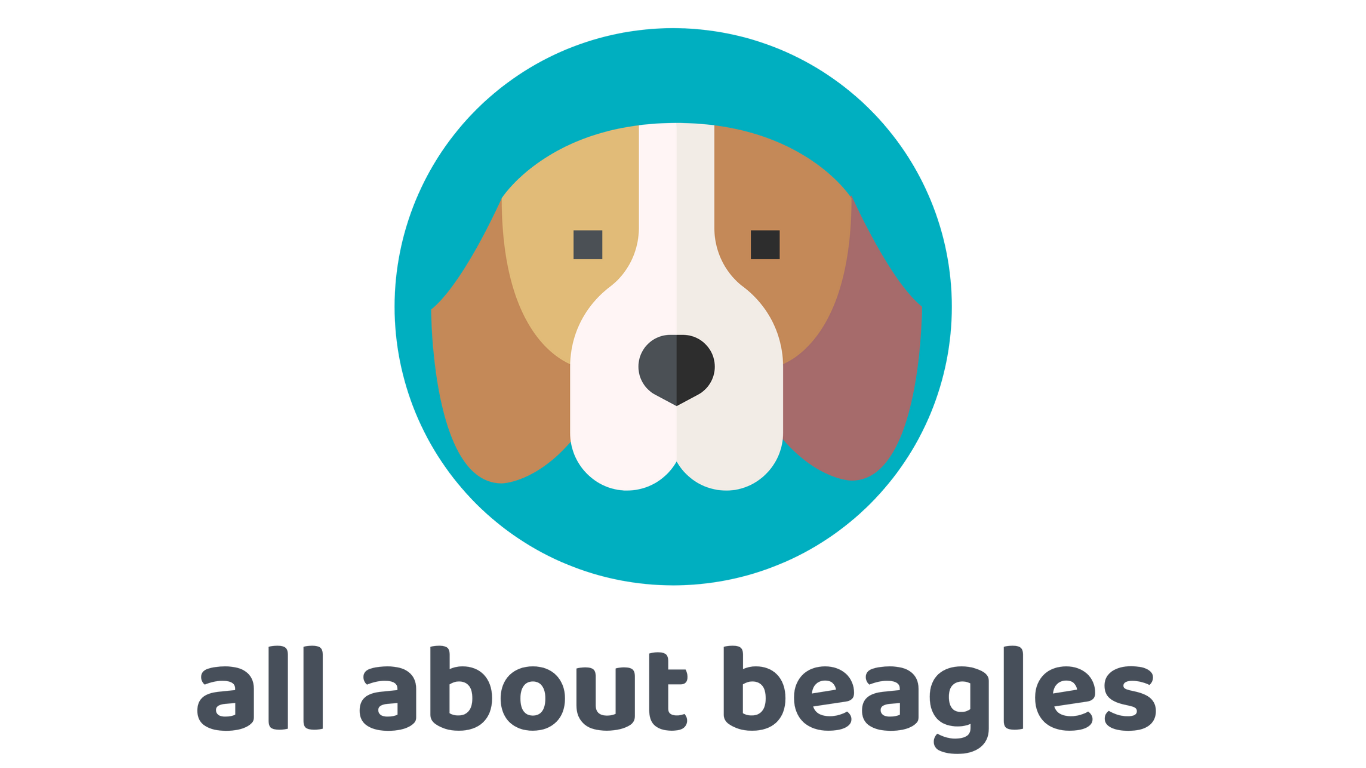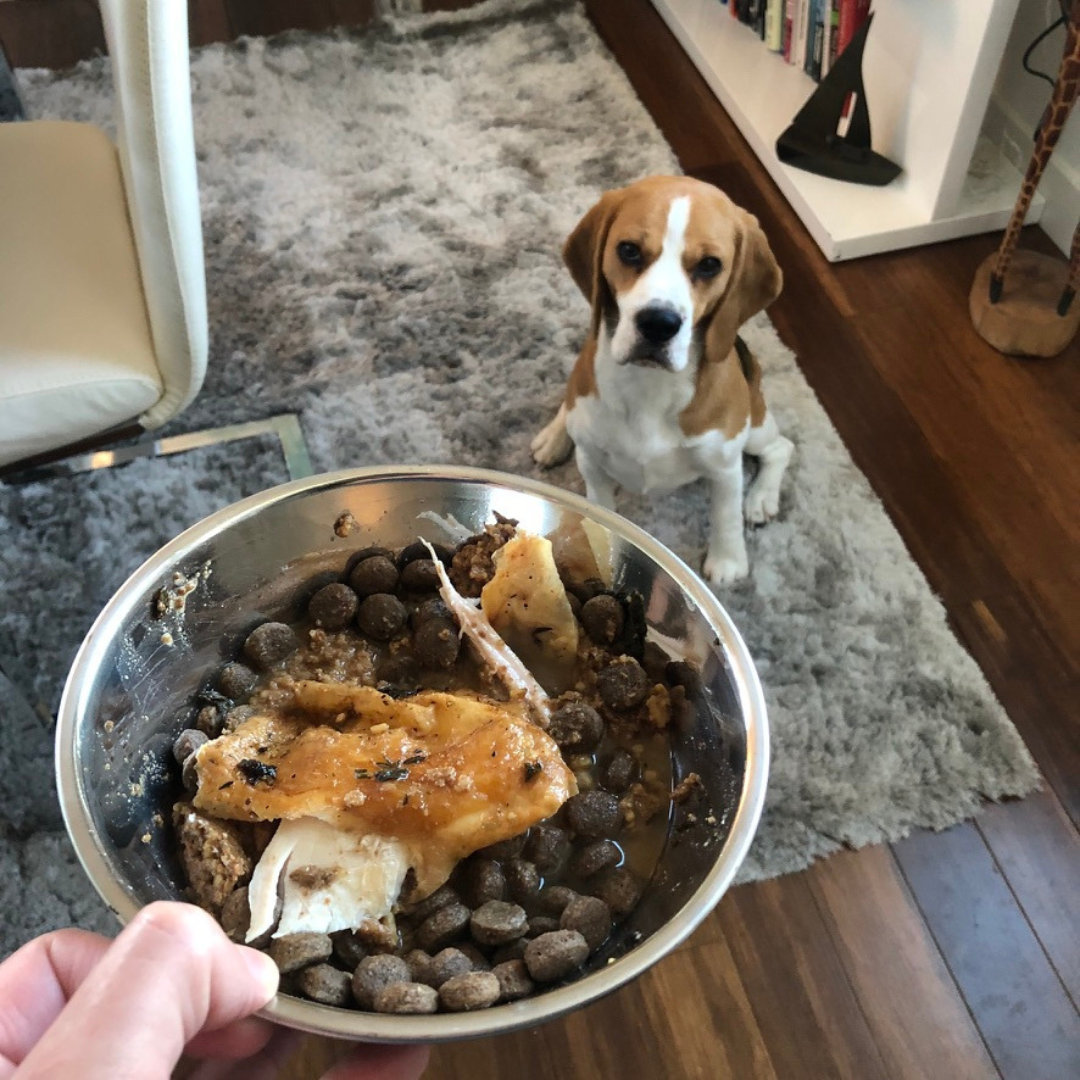How much food should a Beagle eat? How to calculate your Beagle’s food requirements
Beagle mealtime: balance is key for these enthusiastic eaters (and before you ask, I would never feed Cocoa grapes - they can be highly toxic to dogs)
Beagles are famous for approaching everything in life with gusto, including their food! Feeding the right amount of a well-balanced diet is the key to keeping your Beagle fit and healthy, but many people find calculating their dog's food requirements highly confusing.
1) How much food should a Beagle eat?
The quantity of food a Beagle eats should be carefully calculated according to their age, body weight, and activity levels. An 'average' Beagle (if there is such a thing!) will eat around 1-2 cups of food per day, depending on the energy density of the food.
So, how exactly do you calculate how much to feed your Beagle? The simplest way is to look at the manufacturer's guide for the type of food you are feeding - this will tell you the calorie content of the food. Consult the Beagle feeding chart above to determine your Beagle's daily calorie requirements, and use this to calculate how much food your Beagle needs.
For example, Cocoa falls into the large adult Beagle category, weighing in at just under 29lbs (13.1kg). She is prone to weight gain so we err on the side of caution and stick to a maximum of 700 calories per day. This works out at 50 grams (1.7oz) of kibble (a prescription diet for her allergies) and 80-100g (2.8-3.5oz) of wet food. She sometimes gets an alternative source of protein such as chicken or egg, in which case we reduce the amount of wet food accordingly.
When you've got the amount of food your Beagle needs per day figured out, weigh out the full amount, and split this ration into at least two meals per day. The easiest way to do this is to use a measuring cup, into which you weigh half the recommended daily amount of your chosen dog food. Mark the level of the food on the side of the cup, and you've got a quick and easy way of measuring out your Beagle's breakfast and dinner without getting the weighing scales out each time.
Dog nutritionists advise that it is best to review your Beagle's body weight regularly, and adjust the amount being fed accordingly. Manufacturers' guidelines are just a recommendation, so it is vital to also apply your judgment to help your Beagle maintain the ideal body weight.
Meal prep for Beagles: a balance of kibble and protein keeps Cocoa healthy and ready for the day's adventures.
2) Can you overfeed a Beagle?
Beagles are little bundles of energy, but give them too much food and they will soon become overweight and lazy. It is never a good idea to leave out food all day long for your Beagle to nibble away at, as this can quickly lead to obesity. The ideal quantity of food according to your Beagle's body weight should be weighed out and split into two or more meals per day. Never try and guess how much food your Beagle needs, as they will eat everything you put in front of them!
Obesity in dogs is a huge health problem, increasing the risk of issues such as cancer, diabetes, heart disease, and arthritis. Many people underestimate the exercise and nutritional requirements of their dogs, and it is becoming more and more common to see overweight Beagles. The single best thing you can do to increase the lifespan of your Beagle is to ensure they stay active and at a healthy body weight
3) What is the best food for a Beagle?
When it comes to dog food, you really do get what you pay for. Low-budget dog foods are packed with poor-quality ingredients, which can cause a host of health problems for your Beagle. These cheaper 'fillers' are used to bulk out the food, without adding any nutritional value.
When seeking the best food for your Beagle, look for a complete and balanced diet that states that it is formulated to meet the nutritional levels established by the Association of American Feed Control Officials (AAFCO) Dog Food Nutrient Profiles. This statement gives reassurance that all your Beagle's nutritional needs will be met.
A discerning Beagle's gaze at mealtime, reminding us quality food matters
4) Beagle feeding guide: Puppy vs adult vs senior
The nutritional requirements of a Beagle change significantly throughout their lifetime. Whether you're bringing a new Beagle puppy into your family home or have an aging long-eared pooch to care for, picking a diet that meets their life-stage requirements is key to keeping them healthy.
a) Beagle puppy
Puppies grow and develop at a remarkable rate, and need a carefully balanced diet to do so. Getting the correct nutrition during puppyhood will ensure that your new puppy grows into a strong and healthy adult and minimize the risk of health problems later in life.
Young Beagle puppies between 3 and 6 months should be fed high-quality puppy food three or four times daily. Following this, the frequency can be reduced to two meals per day. Weigh your new puppy regularly and increase the amount of food as their body weight increases.
b) Adult Beagle
Beagles are slow to mature, and some are not fully grown until they are 18 months old. Weigh your young Beagle regularly - when their body weight seems to remain the same for several weeks, it is time to gradually switch to a complete adult dog food.
During the crazy, fun-loving adolescent stage, your young adult Beagle may well stay fit and healthy no matter how much food they eat. However, as Beagles get older they naturally start to slow down, leading to a decrease in their calorie requirement. Tracking your Beagle's body weight and using a body condition scoring chart can help you adjust their food intake according to any changes.
c) Senior Beagle
As your Beagle grows older, their nutritional needs begin to change yet again. They have lower energy requirements but also become less efficient at digesting and processing available nutrients. When your Beagle reaches the age of 9, you should start to gradually switch to a senior diet that contains a minimum of 25% protein from a highly digestible source.
During these senior years, weight management becomes more crucial than ever - carrying a few excess pounds can severely impact your Beagle's quality of life. Older Beagles tend to be less energetic, leading to an increased risk of obesity and associated health problems.
By feeding a well-balanced diet in the correct amounts, you can help to keep your Beagle at the ideal body weight and reduce the risk of nutritional imbalances and long-term health problems. If you are at all unsure about whether you've got your Beagle's diet just right, contact your veterinarian or a qualified canine nutritionist for advice.
If you enjoyed this article, you might also like:
🐶 Are Beagles high maintenance?
And don’t forget to come hang out with me and Cocoa on Facebook and Instagram where we share our adventures with you.
If you really loved our content and would like to hear all our latest Beagle news, join our mailing list here.
You can learn more about my Beagle Cocoa and me here.




